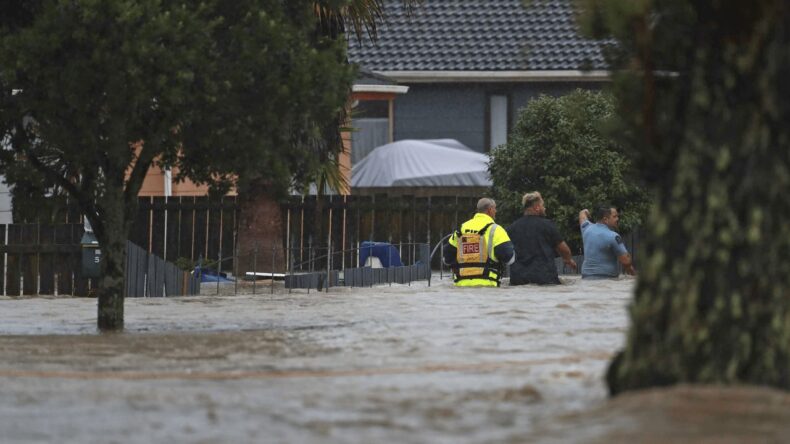Incessant rains in Auckland caused flash floods resulting in four deaths and widespread evacuations. A local state of emergency has been declared in the region as record levels of rainfall have battered the area since Friday.

Auckland is the largest city in New Zealand with 1.6 million people. The amount of rainfall that typically occurs in an entire summer hit the area in a single day with more than 150mm (6 inches) of rain falling in just three hours in some places.
The downpour flooded the airport and there were power cuts that lasted for several hours in thousands of households, while hundreds remained without water. A number of events, including Elton John’s concerts, were cancelled at the last minute. There was widespread damage to houses, roads and infrastructure that would run into losses of millions of dollars.
In the nearby Bay of Plenty, there was also a landslide that had knocked down a house and was threatening neighbouring properties due to large-scale flooding.
Chris Hipkins, the newly appointed Prime Minister, on Saturday travelled to Whenupai, north of Aukland to visit the flood-affected communities. “The loss of life underscores the sheer scale of this weather event and how quickly it turned tragic”, he said in a news conference on Saturday afternoon. He assured that the central government would be providing support to the communities affected.
New Zealand’s defence forces were mobilised to assist with evacuations. Emergency shelters were set up across the city. The severe weather is predicted to last till Tuesday according to MetService. The Auckland Emergency Management said that they shifted their focus from evacuations to the clean-up effort after the rain.

Climate Change to Cause more Adverse Events of Flash Flood:
The torrential rain came from a storm in the north Tasman Sea linked to a source of moisture from the tropics. The storm moved slowly across the country as it was cradled by a huge anticyclone. Severe thunderstorms developed in the unstable air over the Auckland region. The warmer air, leading to large amounts of water vapour in the air could lead to more floods in the future.

Climate change is causing heavy rainfall to be more intense and more common in New Zealand. Individual weather events cannot be attributed to climate change according to scientists. However, the research conducted by the National Institute of Water and Atmospheric Research, the country’s climate science body, has found that global warming will lead to more adverse climate events in New Zealand.
James Shaw, Climate Change Minister, noted the link to climate change on Saturday when he tweeted his support for those affected by flooding. “It goes without saying that we need to have a conversation about how climate change is making these events more frequent and how cities like Auckland are massively underprepared,” said MP, Ricardo March who had to evacuate due to flooding. Low-income families, people with disabilities and other marginalised communities would be the worst affected by these disasters.













